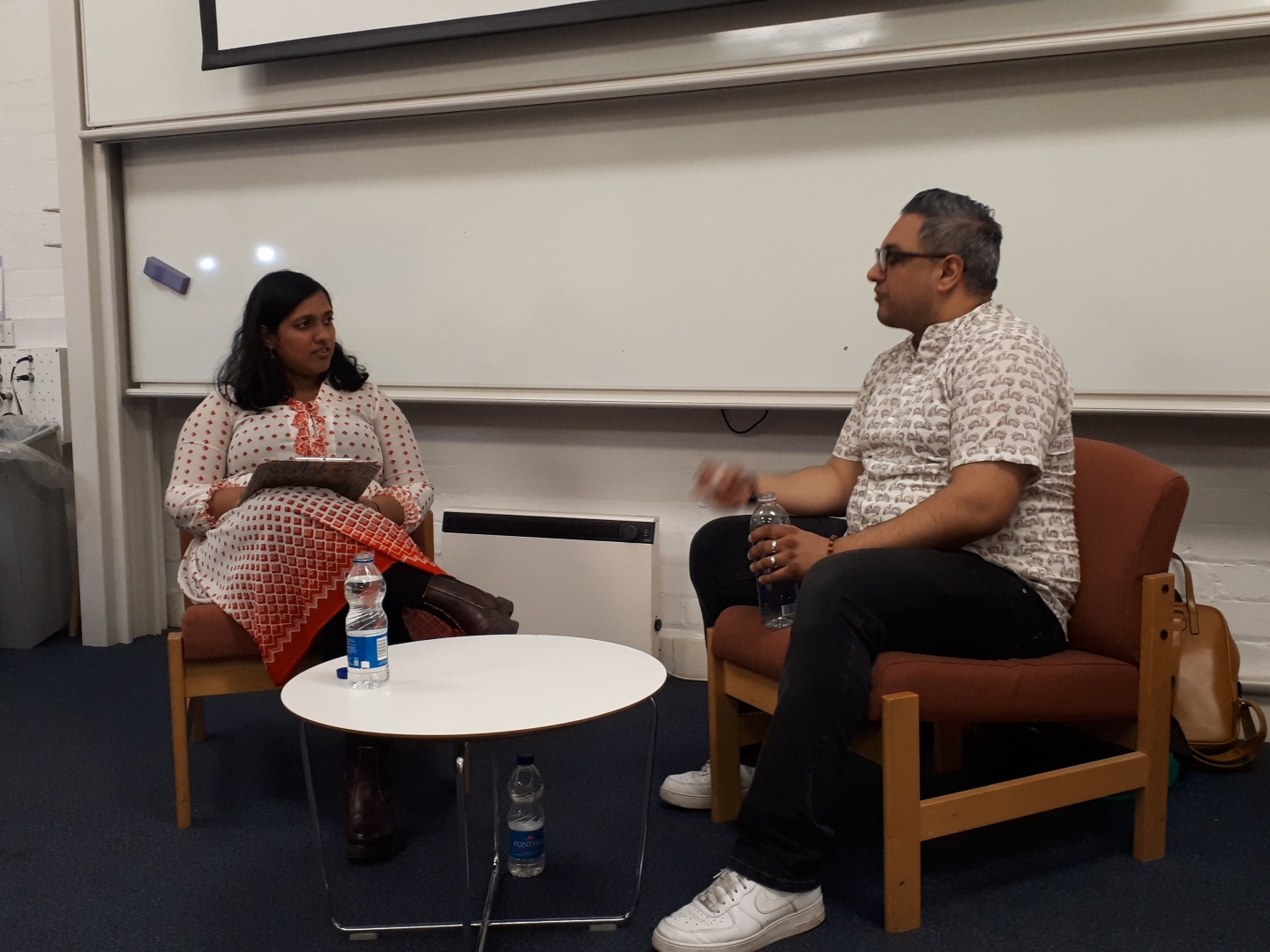This is a great collection filled with moments of real tenderness and surprise. A servant eavesdrops on her mistress’s unfolding affair with a cousin. A parrot speaks the words of a wife’s dead husband like he named her loss. A grandmother comes to terms with her granddaughter’s pregnancy.
Bhattacharya’s characters span the globe, from Venice and Singapore to Cardiff, India, and beyond. But it is not through this easy marketable prism that we are brought into an understanding of the author’s cosmopolitan consciousness. Each tale reveals interesting and original portrayals of characters’ complex inner worlds, with wry observations that normalize difference to serve up precise and original depictions of the beauty and fragility of modern life.
In Bhattacharya’s imagination there is scant room for melodrama; life bares its teeth in intimate, private ways. A strong example of this is in the title story, ‘Table Manners,’ wherein an elderly Chinese woman calls upon a widowed Englishman to help her cat, who is stuck up a tree. The woman thanks the narrator with tea and a home-cooked meal. “She sits me down at the table and offers me tea, I think. It is yellow with flowers floating in it, and it smells like the compost my missus used to make in the bottom of the garden.” The Englishman is touched by the solace and warmth of her food and company – the sudden invitation out of loneliness to see another life lived – that it instigates a small but momentous shift within him.
Politics in Table Manners is more woven than explicit. Bhattacharya’s elegant and understated mode of writing means it is embedded in her depiction of human existence, the intersecting realities of those who travelled and those who stay put. It makes itself known in the hidden patriarchal assumptions of many female characters, in the paradoxical loneliness and connectedness of contemporary existence, and in the importance she gives to women’s cooking as a creative act. One of my favourite stories is entitled ‘Comfort Food,’ the brief but arresting tale of Li Xian, a wife who abandons her homemade chicken soup to support her husband at a business dinner. Li Xian goes to great lengths to reclaim her hunger and this decision refocuses our attention on private resistance, on cooking as a space of feminine creativity, on food as self-love, as a return to self. “It was the night she liked to spend by herself, reading, or just sitting by the window and watching the traffic and the city lights. She ate by herself, and always made her favourite dish, chicken rice.”
This collection, precisely and delicately wrought, is comfort food for readers in wanting rich and heartwarming stories of modern life.
Divya Ghelani is a Leicestershire writer based between the UK and Berlin. She did an MA in Prose Fiction at the UEA and an MPhil in Literary Studies at the University of Hong Kong. She is Programme Associate at the Word Factory and the recipient for an Arts Council grant. Her first novel has been shortlisted for PRH #WriteNowLive, longlisted for the inaugural Deborah Rogers Writers’ Award, the SI Leeds Literary Prize, and received an Honorary Mention in the Harry Bowling Prize.


